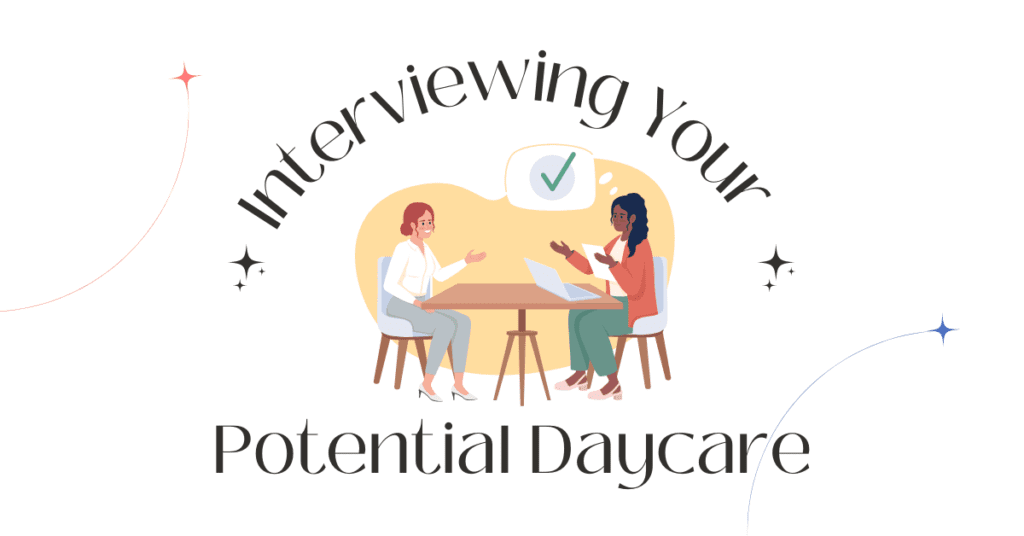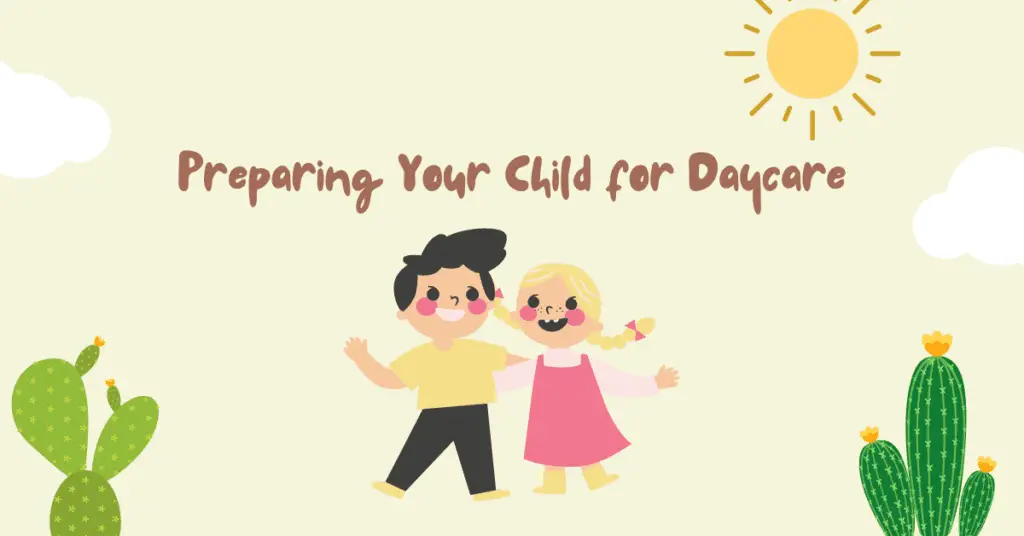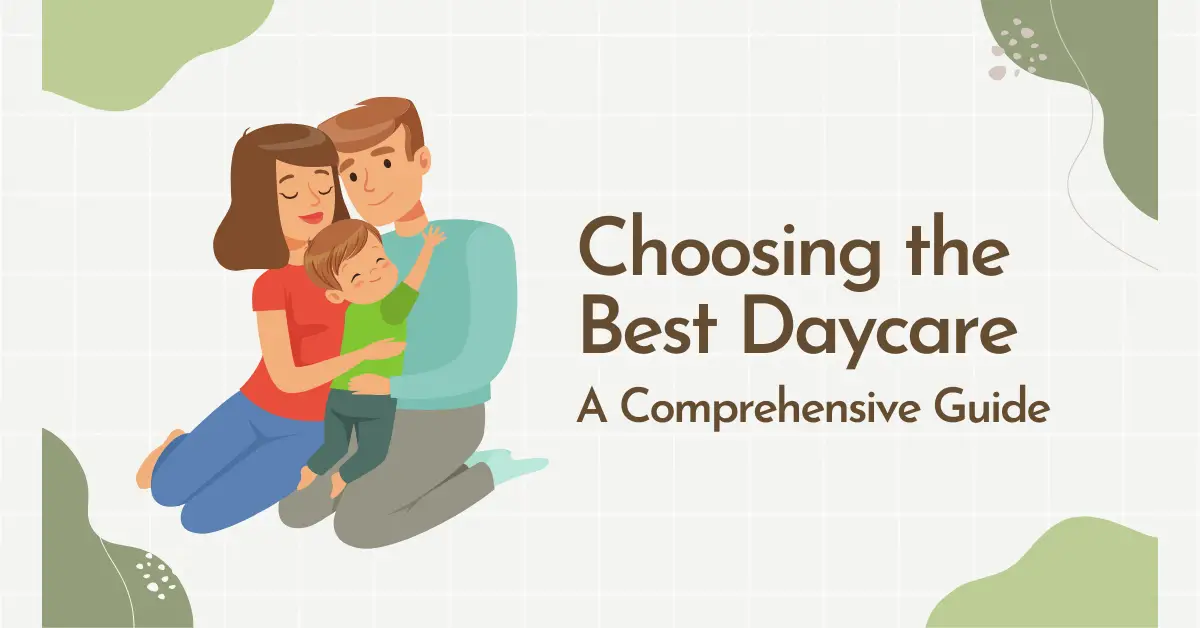Choosing the right daycare is a critical decision for every parent. It influences your child’s early development, shapes their social skills, and importantly, grants you peace of mind during work hours. The ideal daycare should align with your family’s needs, values, and schedule. This comprehensive guide aims to provide you with valuable insights and practical tips to navigate the intricate process of selecting the best daycare for your little one.
Understanding Your Daycare Needs
Before embarking on your daycare search, it’s essential to have a clear understanding of what you’re looking for. Here are some factors you might want to consider:
Deciding What’s Important for Your Family
Location
Would you prefer a daycare that’s closer to your home or your workplace? The answer could depend on your daily commute, the flexibility of your working hours, and your emergency availability.
Hours
Full-time or part-time daycare? This might depend on your work schedule and whether you have support from family members or a nanny.
Curriculum
Some parents prefer an academic-focused daycare, while others might lean towards a play-based or Montessori approach. Consider your child’s needs, your personal philosophy about early learning, and the kind of environment you want your child to grow in.
Importance of a Flexible Daycare Schedule
Life can be unpredictable, especially with kids. A daycare that offers a degree of flexibility—like early drop-off, late pick-up, or occasional extra days—can be a lifesaver when your routine doesn’t go as planned.
Consideration of Your Budget
Daycare is a significant expense for most families. It’s crucial to understand what you can afford without compromising other essential aspects of your family’s life. Remember, the most expensive option is not always the best. Quality care, safety, and a nurturing environment are paramount, and these can be found at various price points.
Special Requirements
Every child is unique, and you might have specific requirements for your child’s daycare. This could include language immersion programs, special needs support, or dietary considerations. Make sure to account for these specific requirements in your search.
Child’s Age and Developmental Stage
The age and developmental stage of your child play a crucial role in selecting a daycare. Infants and toddlers need more personal care and a safe environment to explore, while older children might benefit from a structured curriculum and social interaction opportunities.
Free baby stuff for you to claim for your baby! Sign up to get the PDF with all the links.
Types of Daycare
Understanding the various types of daycare available will help you align your needs with the best-suited option for your child. Here are the most common types:
Home Daycare vs. Daycare Center
Home daycares are usually smaller and might offer a more homely environment. They are often less expensive but may have fewer resources compared to daycare centres. On the other hand, daycare centres are typically larger and have more staff, resources, and structured curriculums. They might also have more stringent licensing requirements.
Preschools
Preschools focus on preparing children for kindergarten. They offer structured curriculums that include play-based learning and basic academic skills. If your child is nearing school age, a preschool might be an ideal choice.
Montessori Schools
Montessori schools follow a specific educational philosophy that encourages child-led learning in a prepared environment. These schools foster independence and might be a great fit if you prefer a less structured, more exploratory approach to your child’s early education.
Cooperative Daycare
Cooperative daycares are parent-run organizations where parents participate in the daycare’s operation, which can create a strong sense of community. They are often less expensive but require a significant time commitment from the parents.
Each type of daycare has its own set of advantages and considerations, so it’s essential to consider what works best for your family’s needs and preferences. In the following sections, we’ll delve into the key factors to look at when choosing a daycare, how to research potential daycare centres and more.
Nanny Shares and Au Pairs
For a more personalized approach, consider nanny shares or hiring an au pair. Nanny shares involve splitting the cost of a nanny between two or more families. An au pair is a caregiver from another country who lives with the family and provides childcare in exchange for room and board, and a stipend. These options offer a high degree of flexibility and personalized care but can be more expensive and require a more significant management role from the parents.
Corporate Daycare
Some employers offer corporate daycare facilities. These can be on-site, which offers a high degree of convenience, or off-site. They typically offer high-quality care but may be more expensive and have limited availability.
Key Factors to Consider in Choosing the Best Daycare
After understanding your needs and the types of daycare available, it’s time to delve into the factors that make a daycare stand out. Here’s what you need to look at:
Staff Credentials and Experience
The qualifications and experience of the staff greatly impact the quality of care and education your child will receive. Look for daycares with certified and experienced staff who engage in ongoing professional development.
Safety and Cleanliness
Ensure the daycare adheres to safety standards and maintains cleanliness. Check for safety measures like secure entrances, childproofing, and emergency procedures. A clean and hygienic environment is crucial to prevent the spread of germs and illnesses.
Daycare Curriculum and Learning Environment
Review the daycare’s curriculum to ensure it aligns with your educational philosophy and goals for your child. The learning environment should be stimulating, inclusive, and suitable for your child’s age and developmental stage.
Child-to-Staff Ratio
Lower child-to-staff ratios allow for more personalized attention and better supervision. Check the regulations in your area and ensure the daycare complies – or ideally – exceeds those standards.
Meal and Nap Schedules
Check the daycare’s meal and nap schedules to ensure they align with your child’s routines. If your child has dietary restrictions, ensure the daycare can accommodate them.
Remember, the best daycare for your child is one that meets your child’s needs, aligns with your family values, and makes your child feel happy and secure.
Communication and Parent Involvement
Daycares should have an open and frequent communication system with parents. Look for facilities that provide regular updates about your child’s progress, behaviour, and any incidents. Additionally, consider whether the daycare encourages parent involvement in activities and decision-making.
Licensing and Accreditation
Ensure the daycare is licensed by the state and follows all regulations. If it is also accredited by organizations like the National Association for the Education of Young Children (NAEYC), it’s a sign of high-quality care and education.
Researching Potential Daycare Centers
After identifying your needs and key factors, the next step is to start researching potential daycare centres. Here’s how:
Online Reviews and Ratings
Online reviews and ratings can give you insights into the experiences of other parents. Websites like Google Reviews, Yelp, and specific daycare review sites can be useful sources.
Word-of-Mouth Recommendations
Ask for recommendations from friends, family, and colleagues. Their experiences can provide invaluable firsthand insights.
Visit and Observe the Daycare in Operation
Once you’ve shortlisted some options, arrange for visits. Observing the daycare in operation can give you a real sense of the environment, staff interactions, and daily routines.

Interviewing Your Potential Daycare Providers
After your visits, it’s time to have detailed discussions with your potential daycare providers. Here’s how to go about it:
Essential Questions to Ask
Prepare a list of questions to ask the daycare providers. These could include questions about their safety protocols, staff turnover, discipline policy, sick-child policy, and more.
Evaluating their Responses
Pay attention not only to their responses but also to how they respond. Are they open and transparent? Do they seem patient and understanding? Their attitudes during this process can give you a glimpse into their overall approach towards childcare.
Trust Your Instincts
While asking questions and getting factual answers is vital, don’t discount your gut feelings. You know your child best, and if something doesn’t feel right, it’s worth considering.
Follow-Up References
Ask the daycare for references and make sure to follow up with them. Speaking with other parents can provide additional insights into the daycare’s operation and reputation.
Making the Final Decision
You’ve done the research, asked the questions, and now it’s time to make the final decision. Here’s how to do it:
Trusting Your Instincts
At this stage, trusting your instincts becomes even more critical. You should feel comfortable and confident with your decision. If you have any doubts, take some time to think or revisit some of the daycares.
Weighing the Pros and Cons
Consider creating a pros and cons list for each of your top choices. This can help visualize and weigh the different factors involved in your decision.
Confirming the Daycare Meets Your Needs
Revisit your initial list of needs and preferences. Make sure your chosen daycare meets these requirements or offers acceptable alternatives.

Preparing Your Child for Daycare
Once you’ve chosen a daycare, it’s time to prepare your child for this new journey. Here are some helpful steps and tips on how to prepare them.
Easing the Transition
Start talking to your child about daycare. Explain what it is, what they can expect, and the fun things they’ll do there. Consider visiting the daycare with your child a few times before they officially start to familiarize them with the new environment.
Establishing a Routine
Start establishing a consistent routine that aligns with the daycare schedule. This includes consistent meal times and nap times. This can help make the transition smoother for your child.
Communicating with Your Child About Daycare
Keep the lines of communication open. Encourage your child to express their feelings about daycare and reassure them about any concerns or fears they might have.
Best of Luck Choosing Your Daycare!
Choosing the best daycare is an important decision that requires careful consideration and research. By understanding your needs and preferences, considering various daycare types, evaluating key factors, conducting thorough research, and preparing your child, you can find a daycare that’s a perfect fit for your family. Remember, the best daycare is one where your child feels safe, happy, and nurtured, and where their unique needs and interests are met.
We hope this comprehensive guide has been helpful in your journey to find the best daycare for your child. We invite you to share your thoughts, experiences, or any additional tips you might have in the comments below. If you found this guide helpful, please share it with other parents who might be in the midst of their daycare search. For more parenting tips and advice, don’t forget to subscribe to our newsletter or follow us on our social media channels. Happy searching!


Thanks for the heads up to invest in a daycare that offers your ideal curriculum that fits your child’s needs. I heard that my friend wants to become a parent after marrying his girlfriend this year. I will talk to him about considering the idea of finding an ideal daycare for their child’s future.